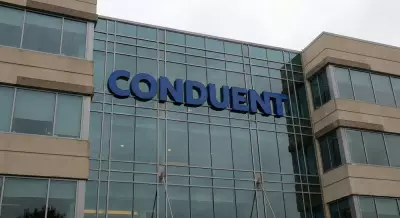Hackers Breach North Carolina’s RHCC; Over 60,000 Patients Suffer Data Loss
Table of Contents
- By Steven
- Published: Nov 28, 2023
- Last Updated: Nov 30, 2023

Robeson Health Care Corporation (RHCC) is a healthcare network serving North Carolina residents. They offer behavioral, dental, general, and outreach services in nine locations across six counties. RHCC also hosts several rehabilitation and health programs aimed at improving and encouraging healthy lifestyles. In February, RHCC experienced malware within its network, resulting in the loss of 60k patient records.
How Did the Attack Occur?
RHCC’s Notice of Security Event indicates it was a malware attack—but this may have been a symptom of a more significant event. They say the unauthorized party gained access to their systems but do not reference how the attacker made this possible. There are also no indicators of employee or human error causing the breach; that means the attackers might have brutalized their way into the system or snuck in via an unknown vulnerability.
What Information Was Viewed or Stolen?
Specifics about the stolen information are unclear. According to RHCC’s website notice, there is no indication that the malware accessed their electronic medical records. However, it could have accessed patient data not stored within that secure area. The notice suggests the attackers may have stolen patients’ medical records such as names, addresses, Social Security numbers, birthdays, patient ID numbers, Medicare/Medicaid numbers, prescription and treatment information, health insurance information, and treating physicians’ information. The information likely differs between individuals; what does not differ is the need to take protective action to safeguard your data.
How Did Robeson Health Care Corporation Admit to the Breach?
The unauthorized party purportedly gained access to the RHCC systems between February 17th and 21st, 2023. On the 21st, officials presumably discovered the malware and took immediate action. They opened and conducted an investigation that concluded around March 31st and began notifying parties a month later. After completing a full system review, officials are resending impact notices.
What Will Become of the Stolen Information?
According to the breach filing on the Maine Attorney General’s website, the event may impact an estimated 62,627 records. How the assailants plan to use the data is unclear, especially since there is nothing public about the malware symptoms officials faced within the system. If the event was ransomware, RHCC may have been forced to answer demands, for example. However, limited information makes it impossible to say how the assailants may use the data in the future. Despite the uncertainties, how the owner responds to the event partially dictates what happens to the stolen information.
What Should Affected Parties Do in the Aftermath of the Breach?
The breach happened in February, with some parties only being notified now. That means nearly ten months of the data being in the hands of cybercriminals. Regardless of whether you haven’t experienced or seen suspicious activity within your accounts, because the data is “out there,” the criminals could use it at any time—even years later. It may be too late to secure your data (that would have needed to happen in January), but there’s hope. Those with exposed data can still mitigate damages caused by misusing their credentials.
Watch your accounts closely for strange or suspicious activity; enable multi-factor authentication permissions everywhere; sign up for activity alerts and confirmation texts; and invest in monitoring services. Monitors can tell you the moment actors use your data—allowing you to stop, and sometimes revert, the criminal’s actions.
















